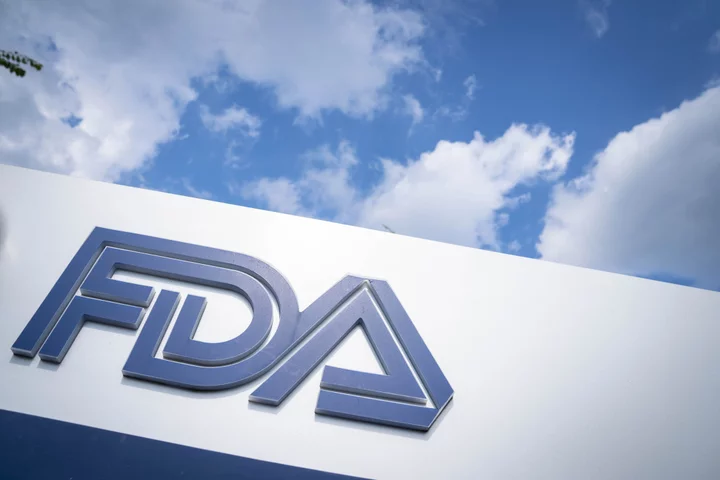The cancer drug Folotyn, one of the most expensive in the US, received a short-cut approval from US regulators to treat a rare form of lymphoma fourteen years ago but officials still don’t have conclusive evidence it works.
Companies cleared to sell drugs through an “accelerated approval” pathway are supposed to promptly conduct follow-up studies to confirm their medicine is effective. But former and current owners of Folotyn, now an Acrotech Biopharma drug, have pushed back the deadline to complete that work at least 10 times, according to a summary of their correspondence with regulators. Acrotech doesn’t expect to complete its study until 2030.
Instances like these have put the US Food and Drug Administration under pressure. On Thursday, the agency is holding a public hearing about Folotyn and another lymphoma drug approved through the accelerated pathway in 2014, Beleodaq. That drug, also owned by Acrotech, won’t have final data showing it works until the end of this decade.
The accelerated approval pathway — in which the FDA accepts smaller, less-conclusive studies instead of the larger trials normally required — has made some companies billions of dollars. While that isn’t the case for Acrotech’s drugs because they treat a rare cancer, peripheral t-cell lymphoma, Folotyn costs around $900,000 a year, according to GoodRx. The drug has had four price increases since January 2022, it notes.
A Bloomberg News investigation found earlier this year that 26 drugs with accelerated approvals either had a delayed confirmatory trial or were behind schedule, but not characterized as “delayed” because the company had submitted some data. As of last month, 12 cancer drug accelerated approvals — including for Folotyn and Beleodaq — were listed as having delayed trials, according to FDA briefing materials published ahead of Thursday’s meeting.
A law passed late last year gives the FDA more power to force drugs off the market when trials fail or aren’t completed in a timely fashion. But briefing materials published ahead of the Thursday meeting show the agency isn’t considering pulling Folotyn or Beleodaq because patients have few alternatives.
An FDA spokesperson declined to comment ahead of Thursday’s meeting.
Missing Data
The public meeting shows a newfound interest by the FDA to solve problems with the accelerated pathway, established in 1992. It was critical in getting HIV drugs to patients quickly, but it has since become a common way for drugmakers to snag approvals before completing large, lengthy trials that can cost millions. In some years, more than 20% of new drugs reached the market that way, according to a Bloomberg analysis.
Critics have said the FDA has been slow to act when accelerated approval drugs fail to show a benefit in patients, or when studies aren’t completed.
“Delaying confirmatory trials for years or decades means companies can profit from inadequately tested drugs until their market exclusivity runs out,” Adriane Fugh-Berman, a professor of pharmacology at Georgetown University Medical Center, said by email.
By the time a drug goes generic, it’s even less likely a drug company is going to do a study to show that it works. “The public never finds out whether benefits outweigh harms or even whether the drug works at all,” Fugh-Berman said.
If drugs stay on the market “despite such blatant disregard for timely provision of confirmatory data,” it sends the wrong message, said Bishal Gyawali, an associate professor of oncology at Queen’s University in Canada.
Extension Requests
About a third of the 187 cancer drugs with accelerated pathway clearance are awaiting studies proving their clinical benefits. Of those, Folotyn and Beleodaq have some of the most delayed trials, FDA documents show. The agency cited “clinically meaningful activity” in the original tumor shrinkage trials from years ago as the reason it wasn’t pushing to withdraw them.
Acrotech, a subsidiary of India’s Aurobindo Pharma Ltd., says it’s committed to promptly completing the necessary studies, according to hearing documents. It blames “unanticipated delays” on several issues, including slow enrollment in some studies, the fact that it bought the drugs from another company in 2019, and the Covid-19 pandemic. Acrotech didn’t respond to emails requesting comment.
Folotyn was originally owned by Allos Therapeutics. At first, the FDA gave the company six and eight years to complete two big trials. One was supposed to have 549 patients. By 2014, two years after Allos was sold to Spectrum Pharmaceuticals, only about 20 patients had been recruited, according to clinicaltrials.gov.
In 2014, the FDA let Spectrum abandon the old trials and start a new one from scratch assessing Folotyn and its newer drug for the same type of cancer, Beleodaq. Since then, Spectrum and Acrotech have proposed extending timelines for trials of the two drugs at least 30 times. The agency has issued “non-compliance” letters more than a dozen times. The main confirmatory trial only began last month, hearing briefing documents show.
At Thursday’s meeting, outside advisers to the FDA will be asked to discuss whether Acrotech’s proposed 2030 timeline for completion of this trial is “reasonable.” The panel, called the Oncologic Drugs Advisory Committee, will also be asked to consider strategies for timely completion, as well as lessons for future accelerated approvals.
Since the FDA isn’t asking to take either drug off the market, it’s not clear what the agency might do, if anything, if there are further delays.
--With assistance from Bill Haubert.

